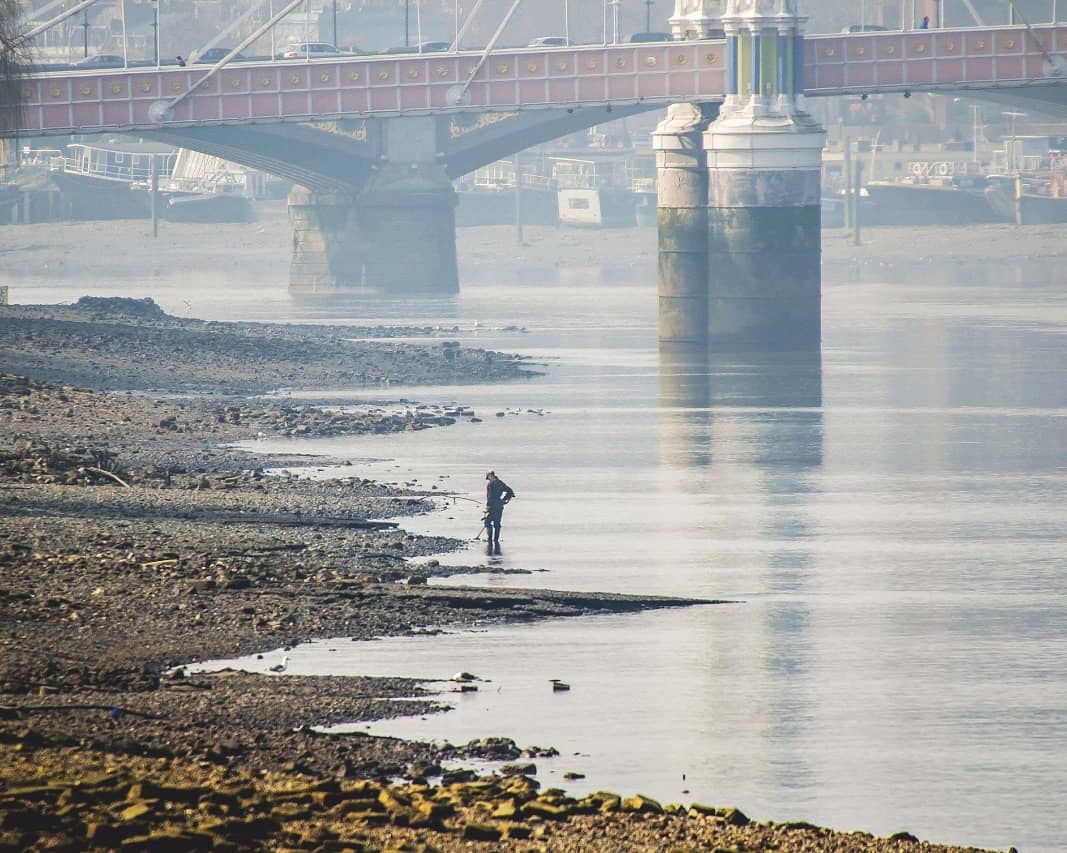
FOR centuries, people have combed the banks of the Thames, picking through the stony foreshore whenever the tide permits it, searching for treasure. Once, mudlarks were among London’s poorest inhabitants, sifting through piles of washed-up waste in the hope of finding something to sell. Today, London still has a thriving community of mudlarks, but those who roam the riverside are more likely to be archaeologists, history-lovers or people seeking a respite from the bustle of the capital.
One of the river’s more frequent visitors is Lara Maiklem, who has been mud larking for nearly 20 years, exploring the length of the tidal Thames from Teddington right out to the mouth of the estuary. Having grown up on a Surrey dairy farm, Miss Maiklem found herself missing the countryside after she moved to London to begin her career in publishing and started searching for an urban substitute. ‘I was desperately looking for peace and quiet; that’s how I found my way down to the river,’ she explains. ‘It was my own little streak of wilderness running through the heart of the city. In London, you can’t really feel the weather, everything seems blocked and muffled in a funny way. But the river is so wild—it’s another world altogether.’
To begin with, she viewed the foreshore purely as a place of escape, yet, over time, developed an interest in the treasures it harboured. The Thames has been described as England’s longest archaeological site and all manner of objects can be found on its banks at low tide, from prehistoric fossils to modern religious offerings. As London has been populated by humans for millennia, all manner of rare items are lurking in the mud—Roman pottery, gold coins, even human remains, have been thrown, dropped or washed into the Thames.
This story is from the {{IssueName}} edition of {{MagazineName}}.
Start your 7-day Magzter GOLD free trial to access thousands of curated premium stories, and 9,000+ magazines and newspapers.
Already a subscriber ? Sign In
This story is from the {{IssueName}} edition of {{MagazineName}}.
Start your 7-day Magzter GOLD free trial to access thousands of curated premium stories, and 9,000+ magazines and newspapers.
Already a subscriber? Sign In

Tales as old as time
By appointing writers-in-residence to landscape locations, the National Trust is hoping to spark in us a new engagement with our ancient surroundings, finds Richard Smyth

Do the active farmer test
Farming is a profession, not a lifestyle choice’ and, therefore, the Budget is unfair

Night Thoughts by Howard Hodgkin
Charlotte Mullins comments on Moght Thoughts

SOS: save our wild salmon
Jane Wheatley examines the dire situation facing the king of fish

Into the deep
Beneath the crystal-clear, alien world of water lie the great piscean survivors of the Ice Age. The Lake District is a fish-spotter's paradise, reports John Lewis-Stempel

It's alive!
Living, burping and bubbling fermented masses of flour, yeast and water that spawn countless loaves—Emma Hughes charts the rise and rise) of sourdough starters

There's orange gold in them thar fields
A kitchen staple that is easily taken for granted, the carrot is actually an incredibly tricky customer to cultivate that could reduce a grown man to tears, says Sarah Todd

True blues
I HAVE been planting English bluebells. They grow in their millions in the beechwoods that surround us—but not in our own garden. They are, however, a protected species. The law is clear and uncompromising: ‘It is illegal to dig up bluebells or their bulbs from the wild, or to trade or sell wild bluebell bulbs and seeds.’ I have, therefore, had to buy them from a respectable bulb-merchant.

Oh so hip
Stay the hand that itches to deadhead spent roses and you can enjoy their glittering fruits instead, writes John Hoyland

A best kept secret
Oft-forgotten Rutland, England's smallest county, is a 'Notswold' haven deserving of more attention, finds Nicola Venning